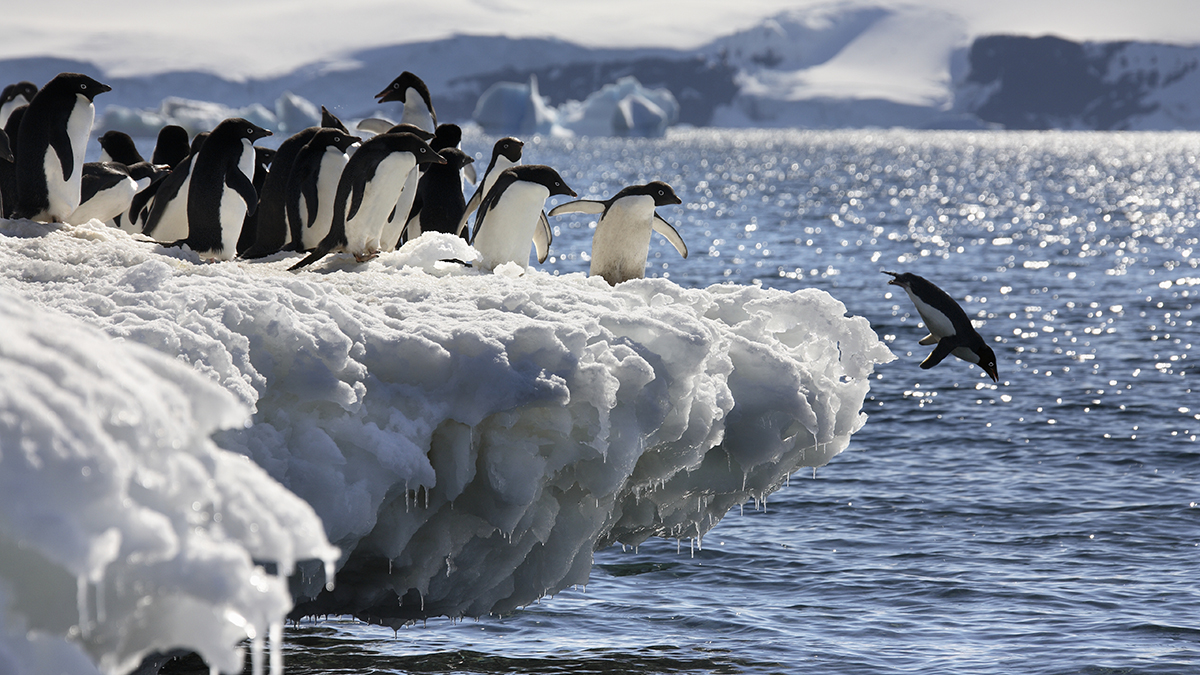Floating igloos offer hope for threatened penguins
Creator of new ‘Penguin Protection System’ says the structures protect endangered species while combating climate change

A free daily email with the biggest news stories of the day – and the best features from TheWeek.com
You are now subscribed
Your newsletter sign-up was successful
An innovative new “floating igloo” concept can help to protect endangered penguins and slow the melting of polar ice in Antarctica, according to the architect who dreamed up the design.
The igloo structure is split into two parts, one of which is under water and the above. The “upper structures provide penguins with man-made habitats for breeding, along with enough space for a waddle to keep eggs warm”, the Daily Mail reports.
“The lower igloo features crater-like holes that mimic a sea sponge and is connected to a submerged swinging pendulum.”
The Week
Escape your echo chamber. Get the facts behind the news, plus analysis from multiple perspectives.

Sign up for The Week's Free Newsletters
From our morning news briefing to a weekly Good News Newsletter, get the best of The Week delivered directly to your inbox.
From our morning news briefing to a weekly Good News Newsletter, get the best of The Week delivered directly to your inbox.
As waves move this pendulum, it produces electricity to cool the surrounding ice and help prevent the melting of the frozen sheets on which penguins live and breed.
The concept, called the Penguin Protection System, is the brainchild of Iranian architect Sajjad Navidi. In a post on his Instagram page, he writes: “This system is independent in nature and, when needed, smartly separates and moves towards [the penguins] by identifying melting ice areas.”
If funding can be secured for a mass rollout of the igloos, Navidi’s system could help save emperor penguins from extinction. A 2019 study by the Massachusetts- based Woods Hole Oceanographic Institution (WHOI) found that a warming climate could see the species wiped out within decades.
“If global climate keeps warming at the current rate, we expect emperor penguins in Antarctica to experience an 86% decline by the year 2100,” said seabird ecologist Stephanie Jenouvrier, who led the study. “At that point, it is very unlikely for them to bounce back.”
A free daily email with the biggest news stories of the day – and the best features from TheWeek.com
According to the Financial Times, “the struggle of Antarctica’s animals to adapt to global warming holds lessons for us all”.
Antarctica is home to 70% of the world’s fresh water, and 90% of its ice - and if the continent melted completely, global sea levels could rise by 60 metres.
Chas Newkey-Burden has been part of The Week Digital team for more than a decade and a journalist for 25 years, starting out on the irreverent football weekly 90 Minutes, before moving to lifestyle magazines Loaded and Attitude. He was a columnist for The Big Issue and landed a world exclusive with David Beckham that became the weekly magazine’s bestselling issue. He now writes regularly for The Guardian, The Telegraph, The Independent, Metro, FourFourTwo and the i new site. He is also the author of a number of non-fiction books.